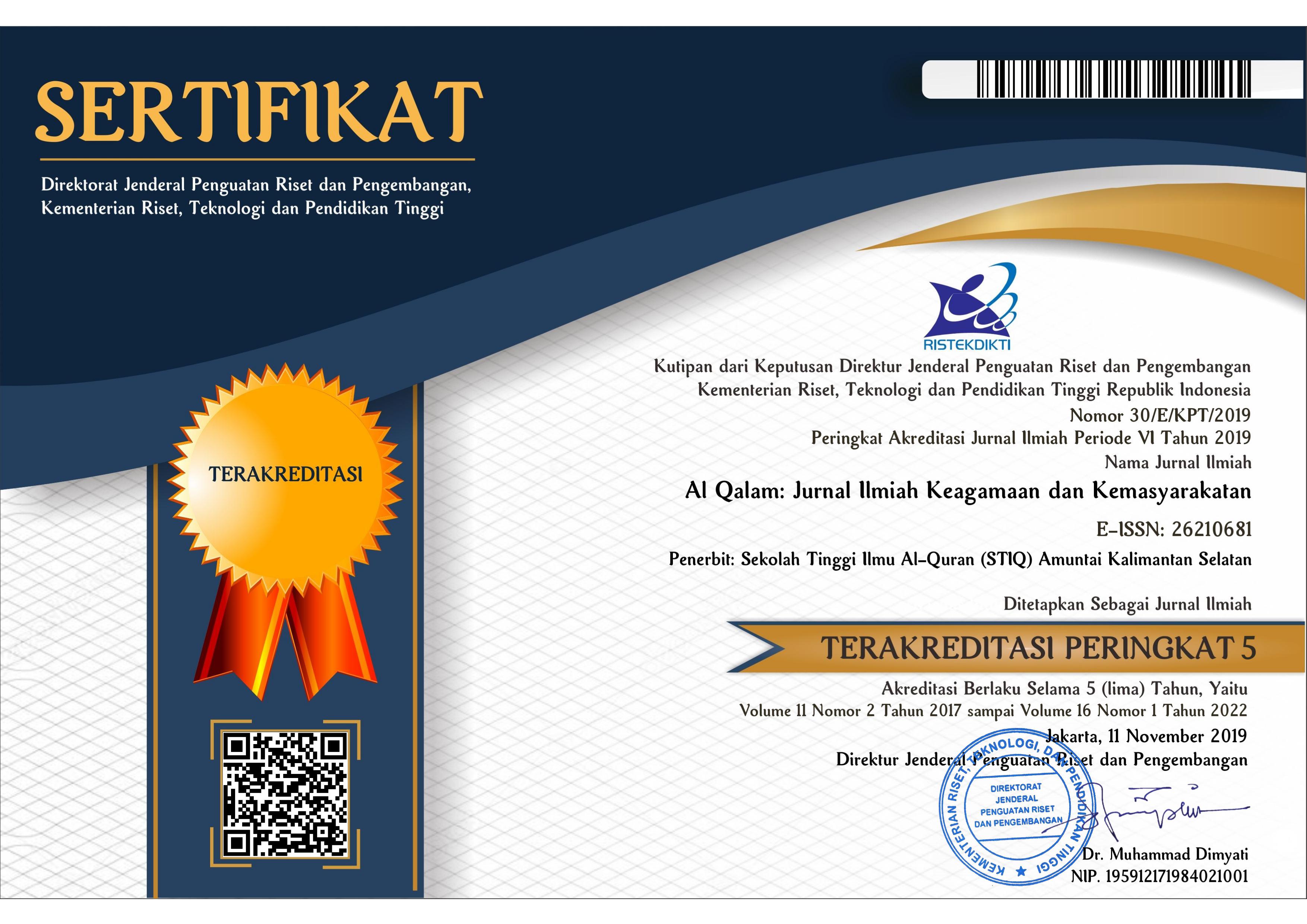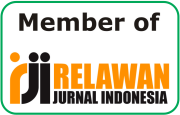The Role of Educational Transformation in the Digital Era in Improving Student Quality
Abstract
This study illustrates how educational transformation in the digital era plays a significant role in improving the quality of students. Through the utilization of various platforms and digital tools, education becomes more innovative and dynamic. Adaptive learning processes enable the development of skills in line with the needs of the modern job market. The aim of this research is to describe the role of educational transformation in the digital era in enhancing the quality of students. The research employs a qualitative approach with interview, observation, and documentation methods to obtain relevant data related to the research on the role of educational transformation in the digital era in improving the quality of students. The research is conducted in the Accounting Education Program at Muhammadiyah University of Surakarta with three lecturers and three students as informants. Data obtained from informants is further processed using the triangulation technique, involving different sources of data and methods. The steps of data analysis include merging, sampling, recording, data reduction, and drawing conclusions. The research findings indicate that the transformation provides significant opportunities to enrich students' learning experiences. However, challenges such as variations in technology understanding among lecturers and the need for the development of digital competencies in students must be addressed. Strong institutional support, including providing training for lecturers and adequate infrastructure on campus, is acknowledged as key to the successful implementation of these changes. This transformation not only contributes to the improvement of student quality but also encourages collective efforts in overcoming emerging obstacles.
Keywords
Full Text:
PDFReferences
Amelia, Nanda Putri, Intan Sabila, and Masduki Asbari. “Pancasila as a Paradigm of Science and Technology.” Journal of Information Systems and Management (JISMA) 1, no. 2 (May 1, 2022). https://doi.org/10.4444/jisma.v1i2.8.
Areekul, C. “The Development of Learning Innovation as Board Game for Enhanceing the Active Citizen of the Undergraduate Student.” Panna Panithan Journal 5, no. 2 (2020).
Bahri, Syamsul. “Pengembangan Kurikulum Dasar Dan Tujuannya.” Jurnal Ilmiah Islam Futura 11, no. 1 (February 3, 2017). https://doi.org/10.22373/jiif.v11i1.61.
Benavides, Lina María Castro, Johnny Alexander Tamayo Arias, Martín Darío Arango Serna, John William Branch Bedoya, and Daniel Burgos. “Digital Transformation in Higher Education Institutions: A Systematic Literature Review.” Sensors 20, no. 11 (January 2020). https://doi.org/10.3390/s20113291.
Boholano, Helen. “Smart Social Networking: 21st Century Teaching and Learning Skills.” Research in Pedagogy 7, no. 2 (2017). https://doi.org/10.17810/2015.45.
Buraimoh, Oluwaseun Funmilola, Charity H. M. Boor, and Gboyega Ayodeji Aladesusi. “Examining Facilitating Condition and Social Influence as Determinants of Secondary School Teachers’ Behavioural Intention to Use Mobile Technologies for Instruction.” Indonesian Journal of Educational Research and Technology 3, no. 1 (February 14, 2022). https://doi.org/10.17509/ijert.v3i1.44720.
Dengler, Katharina, and Britta Matthes. “The Impacts of Digital Transformation on the Labour Market: Substitution Potentials of Occupations in Germany.” Technological Forecasting and Social Change 137 (December 1, 2018). https://doi.org/10.1016/j.techfore.2018.09.024.
Englund, Claire, Anders D. Olofsson, and Linda Price. “Teaching with Technology in Higher Education: Understanding Conceptual Change and Development in Practice,” November 1, 2017.
Fauzan, Umar, and Luluk Humairo Pimada. “ICT-Based Teaching of English at Madrasah Aliyah in Kalimantan.” TARBIYA: Journal of Education in Muslim Society 5, no. 2 (December 26, 2018). https://doi.org/10.15408/tjems.v5i2.10414.
Favale, Thomas, Francesca Soro, Martino Trevisan, Idilio Drago, and Marco Mellia. “Campus Traffic and E-Learning during COVID-19 Pandemic.” Computer Networks 176 (July 2020). https://doi.org/10.1016/j.comnet.2020.107290.
Firmansyah, R., D. M. Putri, M. G. S. Wicaksono, S. F. Putri, A. A. Widianto, and M. R. Palil. “Educational Transformation: An Evaluation of Online Learning Due to COVID-19.” International Journal of Emerging Technologies in Learning, 2021.
Hafifah, Gusti Nur, and Gunadi Harry Sulistyo. “Teachers’ ICT Literacy and ICT Integration in ELT in the Indonesian Higher Education Setting.” Turkish Online Journal of Distance Education, July 1, 2020. https://doi.org/10.17718/tojde.762050.
Hakim, Arif Rahman, Ani Widayati, Eka Ary Wibawa, and Yolandaru Septiana. “The Effectiveness of Digital Literature-Based Learning Video on Improving Student’s Digital Literature Skill.” Jurnal Pendidikan Ilmu Sosial 33, no. 1 (June 20, 2023). https://doi.org/10.23917/jpis.v33i1.21782.
Haryanto, Eddy. “ICT in Indonesian Public Secondary Schools: EFL Teachers’ Attitude and Problems.” Edukasi: Jurnal Pendidikan Dan Pengajaran, June 5, 2021. https://doi.org/10.19109/ejpp.v8i1.8170.
Hidayat, Mupid, Rama Wijaya Abdul Rozak, Kama Abdul Hakam, Maulia Depriya Kembara, and Muhamad Parhan. “Character Education in Indonesia: How Is It Internalized and Implemented in Virtual Learning?” Jurnal Cakrawala Pendidikan 41, no. 1 (2022). https://doi.org/10.21831/cp.v41i1.45920.
Ifenthaler, Dirk, David Gibson, and Eva Dobozy. “Informing Learning Design through Analytics: Applying Network Graph Analysis.” Australasian Journal of Educational Technology 34, no. 2 (April 27, 2018). https://doi.org/10.14742/ajet.3767.
Ja’ashan, Mohammed Nasser Hassan. “The Challenges and Prospects of Using E-Learning among EFL Students in Bisha University.” Arab World English Journal 11, no. 1 (March 15, 2020). https://doi.org/10.24093/awej/vol11no1.11.
Jääskelä, Päivikki, Päivi Häkkinen, and Helena Rasku-Puttonen. “Teacher Beliefs Regarding Learning, Pedagogy, and the Use of Technology in Higher Education.” Journal of Research on Technology in Education 49, no. 3–4 (October 2, 2017). https://doi.org/10.1080/15391523.2017.1343691.
Khan, H., and J. Iqbal. “Evolution of Online Education: Transformation of Education in India.” Praxis International Journal of Social Science and Literature 4, no. 1 (2021).
Kim, Joshua, and Edward Maloney. Learning Innovation and the Future of Higher Education. JHU Press, 2020.
Lai, Chun, and Tan Jin. “Teacher Professional Identity and the Nature of Technology Integration.” Computers & Education 175 (December 1, 2021). https://doi.org/10.1016/j.compedu.2021.104314.
Majid, Mamoona, Shaista Habib, Abdul Rehman Javed, Muhammad Rizwan, Gautam Srivastava, Thippa Reddy Gadekallu, and Jerry Chun-Wei Lin. “Applications of Wireless Sensor Networks and Internet of Things Frameworks in the Industry Revolution 4.0: A Systematic Literature Review.” Sensors 22, no. 6 (March 8, 2022). https://doi.org/10.3390/s22062087.
Marcelo, Carlos, and Carmen Yot-Domínguez. “From Chalk to Keyboard in Higher Education Classrooms: Changes and Coherence When Integrating Technological Knowledge into Pedagogical Content Knowledge.” Journal of Further and Higher Education 43, no. 7 (August 9, 2019). https://doi.org/10.1080/0309877X.2018.1429584.
Mariani, Marcello M., and Satish Nambisan. “Innovation Analytics and Digital Innovation Experimentation: The Rise of Research-Driven Online Review Platforms.” Technological Forecasting and Social Change 172 (November 2021). https://doi.org/10.1016/j.techfore.2021.121009.
Parlak, Bekir. “Dijital çağda eğitim: Olanaklar ve uygulamalar üzerine bir analiz.” Süleyman Demirel Üniversitesi İktisadi ve İdari Bilimler Fakültesi Dergisi 22, no. Kayfor 15 Özel Sayısı (December 30, 2017).
Perini, Stefano, Rossella Luglietti, Maria Margoudi, Manuel Oliveira, and Marco Taisch. “Learning and Motivational Effects of Digital Game-Based Learning (DGBL) for Manufacturing Education –The Life Cycle Assessment (LCA) Game.” Computers in Industry 102 (November 2018). https://doi.org/10.1016/j.compind.2018.08.005.
Pristiwanti, Desi, Bai Badariah, Sholeh Hidayat, and Ratna Sari Dewi. “Pengertian Pendidikan.” Jurnal Pendidikan Dan Konseling (JPDK) 4, no. 6 (December 2, 2022). https://doi.org/10.31004/jpdk.v4i6.9498.
Rahmi, Mayangsari Nikmatur, and M.Agus Samsudi. “Pemanfaatan Media Pembelajaran Berbasis Teknologi Sesuai Dengan Karakteristik Gaya Belajar.” Edumaspul: Jurnal Pendidikan 4, no. 2 (October 30, 2020). https://doi.org/10.33487/edumaspul.v4i2.439.
Rohmah, Wafrotur. “Upaya Meningkatkan Pengembangan Keprofesian Berkelanjutan dalam Peningkatan Profesionalisme Guru.” Seminar Nasional Pendidikan (SNP), April 2, 2016.
Shah, Raj Kapur, and Linda Anne Barkas. “Analysing the Impact of E-Learning Technology on Students’ Engagement, Attendance and Performance.” Research in Learning Technology 26 (December 20, 2018). https://doi.org/10.25304/rlt.v26.2070.
Sopa, Ardian, Masduki Asbari, Agus Purwanto, Priyono Santoso, Mohamad Ramdan, Riza Primahendra, Mustofa, Dhaniel Hutagalung, Siti Maesaroh, and . Winanti. “Hard Skills versus Soft Skills: Which Are More Important for Indonesian Employees Innovation Capability.” International Journal of Control and Automation 13, no. 2 (April 2, 2020).
Straková, Zuzana, and Ivana Cimermanová. “Critical Thinking Development—A Necessary Step in Higher Education Transformation towards Sustainability.” Sustainability 10, no. 10 (October 2018). https://doi.org/10.3390/su10103366.
Suaedi, Falih, and Dimas Agung Trisliatanto. “The Constructionalisation of Intellectual Capital Based on the Industrial Revolution 4.0: A Meta-Analysis.” International Journal of Innovation, Creativity and Change 13, no. 3 (2020).
Suranto, Suranto, and Famila Rusdianti. “Pengalaman Berorganisasi Dalam Membentuk Soft Skill Mahasiswa.” Jurnal Pendidikan Ilmu Sosial 28, no. 1 (September 7, 2018). https://doi.org/10.2317/jpis.v28i1.6772.
Taşkiran, Ayşe. “Dijital çağda yükseköğretim.” Açıköğretim Uygulamaları ve Araştırmaları Dergisi 3, no. 1 (January 31, 2017).
Tsarapkina, Ju M, A V Anisimova, B D Gadzhimetova, A M Kireycheva, and A G Mironov. “The Impact of Digital Education Transformation on Technical College Teachers.” Journal of Physics: Conference Series 2001, no. 1 (August 1, 2021). https://doi.org/10.1088/1742-6596/2001/1/012030.
Zinger, D., T. Tate, and M. Warschauer. Learning and Teaching with Technology: Technological Pedagogy and Teacher Practice. New York: The SAGE handbook of research on teacher education, 2017.
DOI: http://dx.doi.org/10.35931/aq.v18i3.3301
Refbacks
- There are currently no refbacks.
Copyright (c) 2024 Rifqi Qadar Aditya, Suranto

This work is licensed under a Creative Commons Attribution 4.0 International License.
Al Qalam: Jurnal Ilmiah Keagamaan dan Kemasyarakatan
index by:
Publish by:
Sekolah Tinggi Ilmu Al-Qur'an Amuntai
Contact us:
Address: Jl. Rakha Pakapuran, Amuntai Utara
Kabupaten : Hulu Sungai Utara
Kode Pos : 71471
Provinsi : Kalimantan Selatan
Telephone : 085251613000
Email: hafizhihusinsungkar@gmail.com

This work is licensed under a Creative Commons Attribution 4.0 International License


